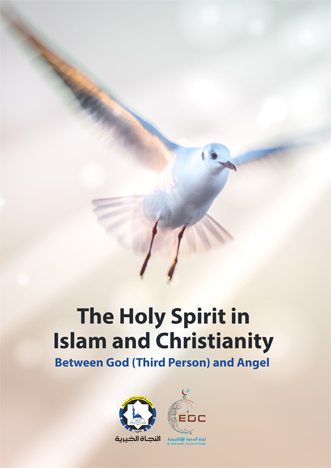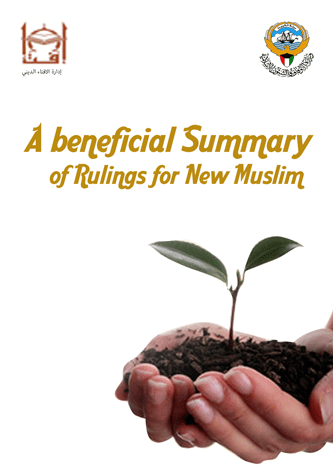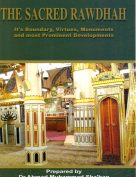
- E-Da`wah Committee (EDC)
- E-Da`wah Committee (EDC)
- 2017
- 8
- 10480
- 4616
- 3375
The Holy Spirit in Islam and Christianity
Between God (Third Person) and Angel
It is the Holy Spirit. It is such a being who perplexed the followers of the Abrahamic religions for there is no consensus over the Holy Spirit’s status: if he is God or an angel or what?
Each Abrahamic religion has its own conception of this unusual being.
It is impossible to reconcile those conceptions given the considerable disparity among them.
Let’s consider the nature of this being in the light of the Qur’an on the one hand and the Bible including the Old Testament and the New Testament on the other hand.
The Holy Spirit in Islam
In Islam, the Holy Spirit is Gabriel, who is an angel of God. He is sometimes mentioned by the name “Gabriel”, whereas he is sometimes referred to, inter alia, as “Holy Spirit”.
He is exclusively named “Holy Spirit” to the exclusion of the other angels given his central role in the revelation of the Holy Scriptures and his support of the prophets of God and godly people.
Scholars sought to account for “Spirit” as an exclusive name of Gabriel unlike the other angels. Al-Jayyani remarked: “he was called ‘Spirit’ for selves are livened by him just as they are livened by spirits.”
Ar-Razi followed by Ibn `Adil noted: “he was called ‘Spirit’ for he was created from God’s Spirit.” It is said that he is given this name “for he represents salvation for all creation in terms of judgment. So he is like a spirit which gives life.” It is also said “for he is wholly a spirit unlike the human beings who have both bodies and spirits.” He is called “trustworthy” for he was entrusted with the revelations conveyed to prophets and others.
The evidence for Gabriel being “the Holy Spirit” is the frequent reference to him that it is he who brought down the Qur’an to Prophet Muhammad and that it is he who supports him along with the other prophets. Such are some of the qualities of the Holy Spirit as set out in the Qur’an.


















 Afar
Afar Afrikaans
Afrikaans Akan
Akan Albanian
Albanian Amharic
Amharic Armenian
Armenian Assamese
Assamese Avari
Avari Azerbaijani
Azerbaijani Basaa
Basaa Bengali
Bengali Bosnian
Bosnian Brahui
Brahui Bulgarian
Bulgarian Burmese
Burmese Catalan
Catalan Chami
Chami Chechen
Chechen Chichewa
Chichewa Circassian
Circassian Comorian
Comorian Czech
Czech Danish
Danish Dutch
Dutch Estonian
Estonian Finnish
Finnish Fulani
Fulani Georgian
Georgian Greek
Greek Gujarati
Gujarati Hausa
Hausa Hebrew
Hebrew Hungarian
Hungarian Icelandic
Icelandic Indonesian
Indonesian Ingush
Ingush Japanese
Japanese Jawla
Jawla Kannada
Kannada Kashmiri
Kashmiri Katlaniyah
Katlaniyah Kazakh
Kazakh Khmer
Khmer Kinyarwanda
Kinyarwanda Korean
Korean Kurdish
Kurdish Kyrgyz
Kyrgyz Latvian
Latvian Luganda
Luganda Macedonian
Macedonian Malagasy
Malagasy Malay
Malay Maldivian
Maldivian Maranao
Maranao Mongolian
Mongolian N'ko
N'ko Nepali
Nepali Norwegian
Norwegian Oromo
Oromo Pashto
Pashto Persian
Persian Polish
Polish Portuguese
Portuguese Romani - gypsy
Romani - gypsy Romanian
Romanian Russian
Russian Serbian
Serbian Sindhi
Sindhi Sinhalese
Sinhalese Slovak
Slovak Slovenian
Slovenian Somali
Somali Swahili
Swahili Swedish
Swedish Tagalog
Tagalog Tajik
Tajik Tamazight
Tamazight Tashamiya
Tashamiya Tatar
Tatar Thai
Thai Tigrinya
Tigrinya Turkish
Turkish Turkmen
Turkmen Ukrainian
Ukrainian Urdu
Urdu Uyghur
Uyghur Uzbek
Uzbek Vietnamese
Vietnamese Yoruba
Yoruba Zulu
Zulu